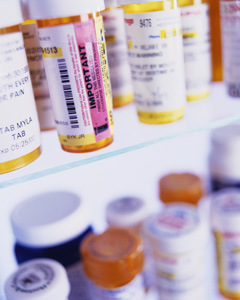A recent study in Utah may provide a startling insight in to what may be a national trend with leftover meds. As reported by Health Day, a startling 97 percent of the study’s individuals who stated having taken opioid pain medicine not prescribed to them over the past year, had gotten the drug from a friend or relative who had a prescription. In most cases the drug was handed over willingly to the individual who reported illegally using or abusing opioid painkillers, such as Oxycontin or Vicodin.
 The study, which was published in the February 19th issue of the U.S. Center for Disease Control and Prevention’s Morbidity and Mortality Weekly Report, also alarmingly found that one in five Utah residents have at least one prescription for opioid painkillers. The majority of patients (71 percent) keep their leftover medication, stating that they paid for them and may need them again.
The study, which was published in the February 19th issue of the U.S. Center for Disease Control and Prevention’s Morbidity and Mortality Weekly Report, also alarmingly found that one in five Utah residents have at least one prescription for opioid painkillers. The majority of patients (71 percent) keep their leftover medication, stating that they paid for them and may need them again.
According to the report, 85.2 percent of the people who used an opioid without a prescription said it was given to them by someone who did, while only 9.8 percent said they took the drug without the knowledge or permission of the owner. And only 4.1 percent said they bought the drug. This study also revealed that deaths in Utah resulting from poisoning by prescription painkillers increased 600 percent from 1999 to 2007.
One warning the research team issued was that holding on to unused prescription medications could result in fatal overdoses, especially for people who aren’t prescribed the drugs. And that the excess of pills makes the possibility of misuse and abuse more likely. The team suggested throwing out leftover opioids by mixing the pills in a separate bag with something undesirable and then throwing the bottle out separately with any identifying information crossed out.
The researchers hope that the study will educate both physicians and the public about the dangers of unused prescription painkillers, and encourage doctors to be more cautious in prescribing and the public more willing to throw out unused prescription medications and to not share prescriptions with other.


